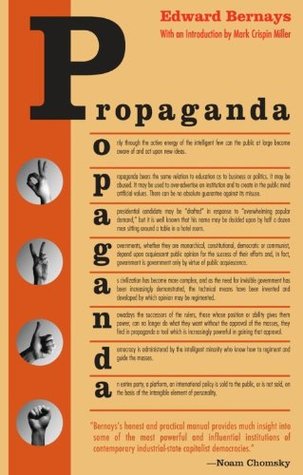More on this book
Community
Kindle Notes & Highlights
Universal literacy was supposed to educate the common man to control his environment. Once he could read and write he would have a mind fit to rule. So ran the democratic doctrine. But instead of a mind, universal literacy has given him rubber stamps, rubber stamps inked with advertising slogans, with editorials, with published scientific data, with the trivialities of the tabloids and the platitudes of history, but quite innocent of original thought.
If we understand the mechanism and motives of the group mind, is it not possible to control and regiment the masses according to our will without their knowing about it?
Scientific accuracy of results is not to be expected, because many of the elements of the situation must always be beyond his control. He may know with a fair degree of certainty that under favorable circumstances an international flight will produce a spirit of good will, making possible even the consummation of political programs.
If you can influence the leaders, either with or without their conscious cooperation, you automatically influence the group which they sway.
His mind retains the patterns which have been stamped on it by the group influences.
In making up its mind, its first impulse is usually to follow the example of a trusted leader.
A thing may be desired not for its intrinsic worth or usefulness, but because he has unconsciously come to see in it a symbol of something else, the desire for which he is ashamed to admit to himself.
Disraeli cynically expressed the dilemma, when he said: “I must follow the people. Am I not their leader?” He might have added: “I must lead the people. Am I not their servant?”
In whatever ways he dramatized the issue, the attention of the public would be attracted to the question before he addressed them personally. Then, when he spoke to his millions of listeners on the radio, he would not be seeking to force an argument down the throats of a public thinking of other things and annoyed by another demand on its attention; on the contrary, he would be answering the spontaneous questions and expressing the emotional demands of a public already keyed to a certain pitch of interest in the subject.
“When the interval between the intellectual classes and the practical classes is too great,” says the historian Buckle, “the former will possess no influence, the latter will reap no benefits.” Propaganda bridges this interval in our modern complex civilization.


